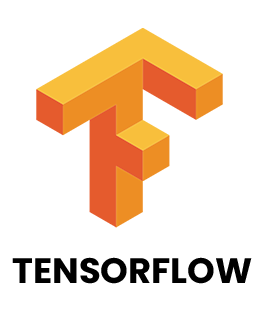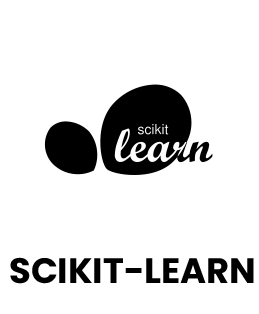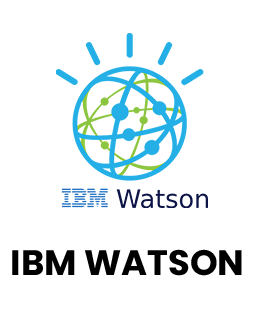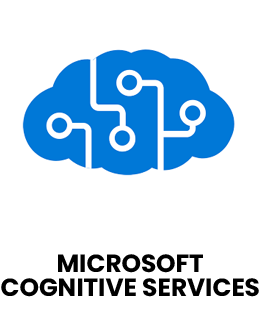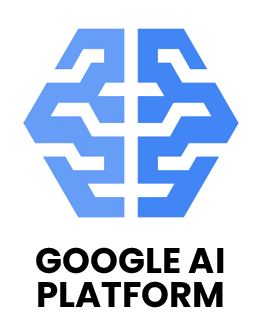ACTE Artificial Intelligence course online certification using TensorFlow is an industry-recognized certification training program to help you master conventional neural networks (CNN), perceptron in CNN, TensorFlow, TensorFlow code, transfer learning, graph visualization, recurrent neural networks (RNN), Deep Learning libraries, GPU in Deep Learning, Keras and TFLearn APIs, backpropagation, and hyperparameters via hands-on projects. Therefore, learn AI by enrolling in the best Artificial Intelligence course online using TensorFlow and become a successful Artificial Intelligence Engineer!
Artificial intelligence can benefit the economy by helping the evolution of work. Robots and AI will help people perform their tasks better, not take their jobs. The combination of man and machine will be unstoppable. Artificial intelligence enhances users' lifestyle choices by using search algorithms that provide targeted information. AI will handle all mundane tasks, such as data entry and answering emails. AI-powered smart homes can cut down on energy use and provide better security.
Yes, In recent years, careers in artificial intelligence (AI) have grown exponentially to meet the demands of digitally transformed industries. While there are plenty of jobs in artificial intelligence, there’s a significant shortage of top tech talent with the necessary skills.
Top 5 Careers in Artificial Intelligence
- Machine Learning Engineer
- Data Scientist
- Business Intelligence Developer
- Research Scientist
- Big Data Engineer/Architect
AI has become the cutting-edge technology in today's technological world with more and more companies adopting it every single day.ACTE AI training helps you get on the AI bandwagon and apply for the highest paid and best suitable jobs in the market.The average salary of an experienced AI professional is $246,500 per year.
yes,As Artificial Intelligence is on the rise and there is an exponential growth in demand for AI professionals and also there is a scope in developing the machines in game playing, speech recognition machine, language detection machine, computer vision, expert systems, robotics and many more.you can expect a high salary in artificial intelligence jobs.According to the job site Indeed, the demand for AI skills has more than doubled over the past three years, and the number of job postings is up by 119 percent.
We are happy and proud to say that we have strong relationship with over 700+ small, mid-sized and MNCs. Many of these companies have openings for Artificial Intelligence Architect.Moreover, we have a very active placement cell that provides 100% placement assistance to our students. The cell also contributes by training students in mock interviews and discussions even after the course completion.
The applications of Artificial Intelligence vary from autonomous cars to translation, from chatbots to image recognition. Digital assistants like Siri and Alexa are typical examples of AI applications, and with recent increased efficiencies in AI, we should see more AI applications in the future.
The AI course is an advanced course and hence the following knowledge would be useful:
- Machine learning knowledge is compulsory.
- Fundamental Python programming skills are needed.
No.But you don’t have to be a software engineer either. Solid basic programming skills are a must. But advanced notions like object-oriented programming and software engineering aren’t needed. And many of those going into AI have a math background, so they’re actually better at some computer science notions than programmers, such as analysis of algorithms.
Our course-ware is designed to give a hands-on approach to the students in Artificial Intelligence. The course is made up of theoretical classes that teach the basics of each module followed by high-intensity practical sessions reflecting the current challenges and needs of the industry that will demand the student's time and commitment.
Absolutely! Although, you will need to have some well-developed engineering skills and a good command of advanced mathematics or you will struggle mightily through your learning experience. These skills will get the conversation going with potential employers, most of which have pre-machine learning needs.
Artificial Intelligence continues to advance and improve the quality of life across multiple industry settings.Candidates can find training programs that offer specific majors in AI or pursue an AI specialization from within majors such as computer science, health informatics, graphic design, information technology or engineering. As a result, those with the skills to translate digital bits of information into meaningful human experiences will be skillful in artificial intelligence to be sustaining and rewarding.
Artificial Intelligence enters our lives in many different ways.The understanding of artificial intelligence(AI) opens lots of opportunities. As you learn more about artificial intelligence, you get a chance to become a developer who will create advanced AI applications like IBM’s Watson or self-driving cars. There are endless possibilities in this field. Studying artificial intelligence is necessary for a career in software engineering, in case you want to work with human-machine interfaces, neural networks, and quantum artificial intelligence. Industries like Amazon and Facebook use artificial intelligence to make shopping list recommendations and to analyze big data.The understanding of artificial intelligence is also necessary for hardware engineers who create home assistants and parking assistants.
Right from healthcare sectors to financial, BFSI to e-commerce, FMGC and so on, every single vertical is keen to devour the AI-powered opportunities to yield significant benefits.
Roles and Responsibilities of an Artificial Intelligence
The job opportunities for Artificial Intelligence specialists are broad, meaning there are a variety of routes for a specialist to take. However, all routes have one similarity, specialist’s program computers to comprehend a diversity of situations. One role for an AI specialist is to program computers to test hypotheses in relation to how the human mind works, through cognitive simulation. An example of this can be seen in Cognitecs ‘FACEVACS’ technology. They use AI for security purposes, to recognise faces and identify whether the person is who they claim to be. The majority of AI specialists work in applied AI, their purpose is to program computer smart systems. These systems cover a number of aspects, ranging from recognizing voices to solving complicated problems.
Furthermore, the role of an Artificial Intelligence specialist is to enhance the offerings and operations within a number of industries. Specialists have already made an impact in the financial, health and sport industries, but also have the potential to impact the law and geology sectors just to name a few. As there are many more, this makes the role of an artificial intelligence specialist flexible.
There are a number of roles for Artificial Intelligence Specialists, these include:
Research scientists (responsible for designing, undertaking and analysing information)
Software Engineer (specialize in a few areas of development, such as networks, operating systems, databases or applications)
C# developer (capable of handling many aspects of developing an application, including but not limited to performance, scalability, security, testing, and more.)
Information Security Engineers (help to safeguard organization's computer networks and systems)
Software development manager (playing a key role in the design, installation, testing and maintenance of software systems.)
Java Developer (specialised type of programmer who may collaborate with web developers and software engineers to integrate Java into business applications, software and websites.)
Software Analyst (studies the software application domain, prepares software requirements, and specification documents.)
If you’re keen to make your data useful with a decision intelligence engineering approach, here’s my take on the order in which to grow your team.
#0 Data Engineer
We start counting at zero, of course, since you need to have the ability to get data before it makes sense to talk about data analysis. If you’re dealing with small datasets, data engineering is essentially entering some numbers into a spread sheet. When you operate at a more impressive scale, data engineering becomes a sophisticated discipline in its own right. Someone on your team will need to take responsibility for dealing with the tricky engineering aspects of delivering data that the rest of your staff can work with.
#1 Decision-Maker
Before hiring that PhD-trained data scientist, make sure you have a decision-maker who understands the art and science of data-driven decision-making. Decision-making skills have to be in place before a team can get value out of data.
#2 Analyst
Then the next hire is… everyone already working with you. Everyone is qualified to look at data and get inspired; the only thing that might be missing is a bit of familiarity with software that’s well-suited for the job. If you’ve ever looked at a digital photograph, you’ve done data visualization and analytics.
#3 Expert Analyst
Enter the lightning-fast version! This person can look at more data faster. The game here is speed, exploration, discovery… fun! This is not the role concerned with rigor and careful conclusions. Instead, this is the person who helps your team get eyes on as much of your data as possible so that your decision-maker can get a sense of what’s worth pursuing with more care.
#4 Statistician
Now that we’ve got all these folks cheerfully exploring data, we’d better have someone around to put a damper on the feeding frenzy. It’s safe to look at that “photo” of Nessie as long as you have the discipline to keep yourself from learning more than what’s actually there… but do you? While people are pretty good at thinking reasonably about photos, other data types seem to send common sense out the window. It might be a good idea to have someone around who can prevent the team from making unwarranted conclusions.



